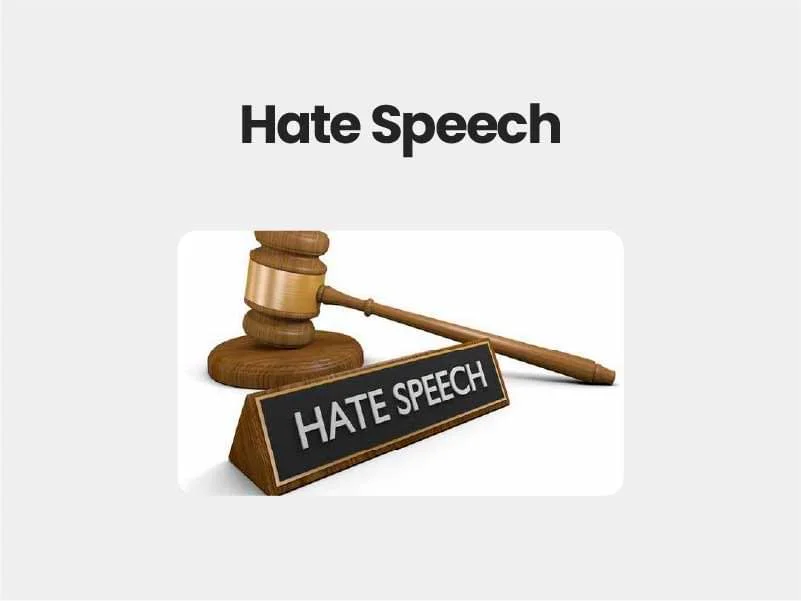
Hate Speech
The growing incidence of hate speeches, especially those targeting minorities, in combination with the judicial ambiguity has provided an opportunity to chart legislative reforms.
Hate speech is neither defined in the Indian legal framework nor can it be easily reduced to a standard definition due to the myriad forms it can take.
The Supreme Court, in Pravasi Bhalai Sangathan v. Union of India (2014), described hate speech as “an effort to marginalise individuals based on their membership in a group” and one that “seeks to delegitimize group members in the eyes of the majority, reducing their social standing and acceptance within society.”
The Indian Penal Code illegally uses speeches that are intended to promote enmity or prejudice the maintenance of harmony between different classes.
Specifically, sections of the IPC, such as 153A, which penalises promotion of enmity between different groups.
153B, which punishes imputations, assertions prejudicial to national integration.
505, which punishes rumours and news intended to promote communal enmity.
295A, which criminalises insults to the religious beliefs of a class by words with deliberate or malicious intention.
Amish Devgan v. Union of India (2020), the Supreme Court held that “hate speech has no redeeming or legitimate purpose other than hatred towards a particular group”.

